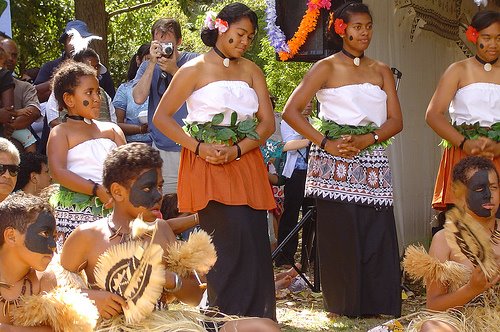MOST people come into our lives as strangers and often leave as close friends.
Such friends are not easily erased from our lives.
This is the case for Yashuhiro Tanaka, of Yamanashi, in Japan.
He came to Fiji three months ago and today leaves for two months in New Zealand.
From there he flies to Australia before returning home next year.
Yash, as he prefers to be called, came and lived with my family for three months as a home-stay student.
He is one of the hundreds of Japanese students who come to the country to study English through the South Pacific Freebird in Japan.
When they arrive in Fiji, the Freebird Language Institute is there to make them feel at home.
They are put in home stays until they leave.
While in Fiji, they either go to the Freebird Schools in Namaka Public School, in Nadi, or the Lautoka Fijian School.
They go to school every day like any other student in Fiji, with weekends off.
For Yash, coming to Fiji was the first time he had left home.
Being in the middle of a family of three children, the only place he went apart from school was work at night as a security officer in a mall in Yamanashi.
He heard about Fiji while studying decided he wanted to come here to study English.
So for the 21-year-old who will be celebrating his next birthday on Tuesday, it was all about sacrifice.
He sold his car and spent his savings and arrived not knowing anything about Fiji.
From when he arrived, I knew it was going to be easy having him stay with us.
This is not the first time we have hosted a foreigner.
We have had Captain Roy Rodricks, from Singapore, stay in our home.
This gave my children Manchester and Abigail a chance to experience multi-culturalism from an early age.
They mingle with Mohammed Haroon, who drives us to town and other places most times.
But in this case, living with a foreigner and including him as part of us was an added bonus in my effort to teach my children to accept everyone as equal from when they are young.
When Yash came in March, Abigail had just turned three and she hardly knew English.
Three months later, she had improved her sentences just like her "older brother" Yash.
This was possible through the daily conversations they had.
Yash was supposed to call me Mama and my husband, Jo Papa. But when he asked the first time, I told him that I would be comfortable if he called us by our names.
I told him to see us as his older siblings and not his parents.
The first few weeks were different but not difficult.
We had to speak to him really slowly and clearly.
This was where some sign languages came in.
But as the days went by, everything fell into its right place.
He even know some Fijian words like moce, vinaka, bula re, kana, dabe.
Yash would go to school in the day and come back home in the afternoon where my sister Kini would have his afternoon tea ready.
And then the weekend was normal he would go to town with Kini and Emosi or join his friends for a field trip.
He quickly adapted to the lifestyle here. And, he said it was a home from away from home.
He even enjoyed his sleep something he hardly did in Japan as he had to go to school and work.
"I love Fiji, it's nice here," he said. "I will come back one day."
Although he was from Japan, he knew nothing about rugby.
But during his stay, he was exposed to the few International Rugby Board Sevens tournaments and how crazy the Fijians are when it came to those games.
That was when he realised sevens was the game in Fiji.
It is not easy farewelling somebody who has become part of our family but Yash is always welcome.
Bula ! Read the latest from Fijituwawa News here. We invite users who have an interesting newsworthy story concerning our Fijian community to send it to us via email. Thank you.
Fijituwawa Links
Fiji Times Online - Local News
Fijituwawa Dance Group 2007

Hamilton Fijian Mixed dance group, from back L to R: Merewairita (Namosi), Alfreda (Vanua Levu/Samoa), Ashley (Kadavu) and Mereoni (Naitasiri). Front are: Desmond (Vasu Naitasiri), Tukai (Kadavu) and Daniel (Vasu Naitasiri)
Fijituwawa Archive
-
▼
2007
(89)
-
▼
June
(21)
- Meet Agapito Muawalu from Labasa
- Peniasi Yearns for a Miracle
- Rugby's Forgotten Warriors
- Meet Mereseini Nabua
- True Son of the Land
- Brothers Kanaki headline Festival
- The Man with the Keen Eye-Iqbal Jannif
- Hard work pays for villager
- Cama cashes in on Balabala
- Tarun Writes his Own Tune
- Selina's Good Hearted Woman
- Rana's baskets last a lifetime
- Yash leaving lasting impact
- Francis cant stop Painting
- Ultimate Test for Teachers
- The aspiring footballer who became a linguist
- Etonia works for the disabled
- A friend of the hungry ones
- Underwater Coral Farms in Fiji
- Underwater Coral Farms in Fiji
- Father & Son Meet At Last
-
▼
June
(21)
About Fijituwawa
- Fijituwawa News
- Auckland, New Zealand
- Contact us via email: publications@fijituwawa.com